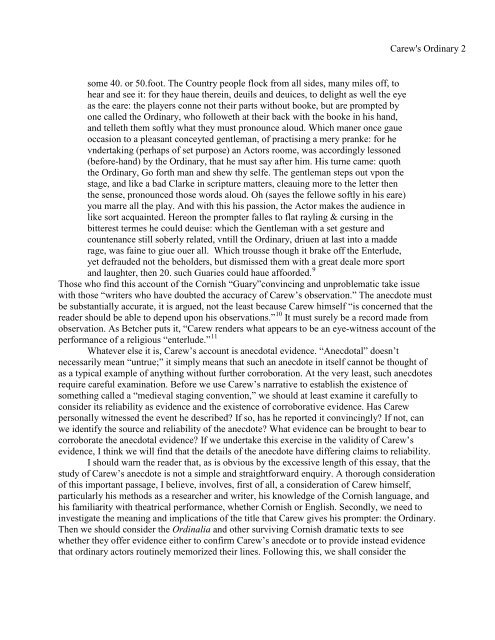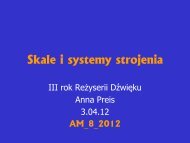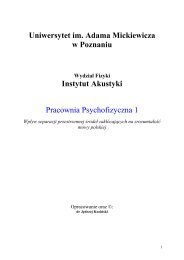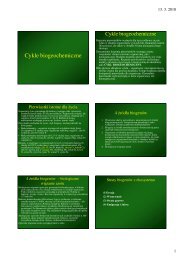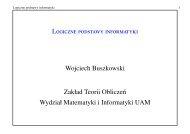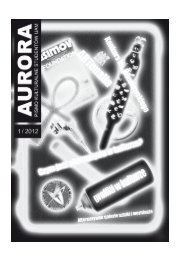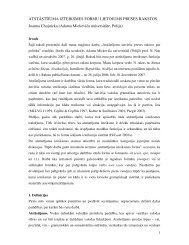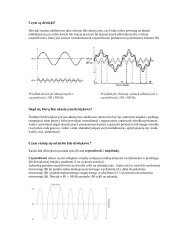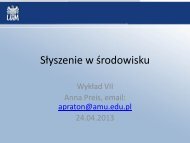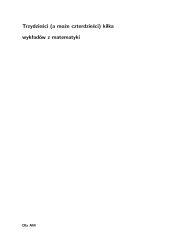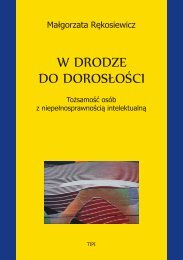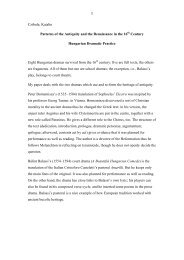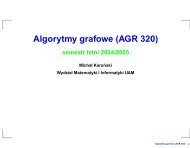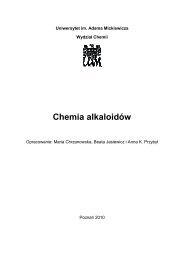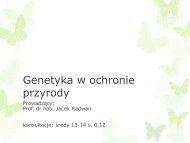Richard Carew. The Ordinary, The Ordinalia, and the Ordinary Actor ...
Richard Carew. The Ordinary, The Ordinalia, and the Ordinary Actor ...
Richard Carew. The Ordinary, The Ordinalia, and the Ordinary Actor ...
You also want an ePaper? Increase the reach of your titles
YUMPU automatically turns print PDFs into web optimized ePapers that Google loves.
<strong>Carew</strong>'s <strong>Ordinary</strong> 2<br />
some 40. or 50.foot. <strong>The</strong> Country people flock from all sides, many miles off, to<br />
hear <strong>and</strong> see it: for <strong>the</strong>y haue <strong>the</strong>rein, deuils <strong>and</strong> deuices, to delight as well <strong>the</strong> eye<br />
as <strong>the</strong> eare: <strong>the</strong> players conne not <strong>the</strong>ir parts without booke, but are prompted by<br />
one called <strong>the</strong> <strong>Ordinary</strong>, who followeth at <strong>the</strong>ir back with <strong>the</strong> booke in his h<strong>and</strong>,<br />
<strong>and</strong> telleth <strong>the</strong>m softly what <strong>the</strong>y must pronounce aloud. Which maner once gaue<br />
occasion to a pleasant conceyted gentleman, of practising a mery pranke: for he<br />
vndertaking (perhaps of set purpose) an <strong>Actor</strong>s roome, was accordingly lessoned<br />
(before-h<strong>and</strong>) by <strong>the</strong> <strong>Ordinary</strong>, that he must say after him. His turne came: quoth<br />
<strong>the</strong> <strong>Ordinary</strong>, Go forth man <strong>and</strong> shew thy selfe. <strong>The</strong> gentleman steps out vpon <strong>the</strong><br />
stage, <strong>and</strong> like a bad Clarke in scripture matters, cleauing more to <strong>the</strong> letter <strong>the</strong>n<br />
<strong>the</strong> sense, pronounced those words aloud. Oh (sayes <strong>the</strong> fellowe softly in his eare)<br />
you marre all <strong>the</strong> play. And with this his passion, <strong>the</strong> <strong>Actor</strong> makes <strong>the</strong> audience in<br />
like sort acquainted. Hereon <strong>the</strong> prompter falles to flat rayling & cursing in <strong>the</strong><br />
bitterest termes he could deuise: which <strong>the</strong> Gentleman with a set gesture <strong>and</strong><br />
countenance still soberly related, vntill <strong>the</strong> <strong>Ordinary</strong>, driuen at last into a madde<br />
rage, was faine to giue ouer all. Which trousse though it brake off <strong>the</strong> Enterlude,<br />
yet defrauded not <strong>the</strong> beholders, but dismissed <strong>the</strong>m with a great deale more sport<br />
<strong>and</strong> laughter, <strong>the</strong>n 20. such Guaries could haue affoorded. 9<br />
Those who find this account of <strong>the</strong> Cornish “Guary”convincing <strong>and</strong> unproblematic take issue<br />
with those “writers who have doubted <strong>the</strong> accuracy of <strong>Carew</strong>’s observation.” <strong>The</strong> anecdote must<br />
be substantially accurate, it is argued, not <strong>the</strong> least because <strong>Carew</strong> himself “is concerned that <strong>the</strong><br />
reader should be able to depend upon his observations.” 10 It must surely be a record made from<br />
observation. As Betcher puts it, “<strong>Carew</strong> renders what appears to be an eye-witness account of <strong>the</strong><br />
performance of a religious “enterlude.” 11<br />
Whatever else it is, <strong>Carew</strong>’s account is anecdotal evidence. “Anecdotal” doesn’t<br />
necessarily mean “untrue;” it simply means that such an anecdote in itself cannot be thought of<br />
as a typical example of anything without fur<strong>the</strong>r corroboration. At <strong>the</strong> very least, such anecdotes<br />
require careful examination. Before we use <strong>Carew</strong>’s narrative to establish <strong>the</strong> existence of<br />
something called a “medieval staging convention,” we should at least examine it carefully to<br />
consider its reliability as evidence <strong>and</strong> <strong>the</strong> existence of corroborative evidence. Has <strong>Carew</strong><br />
personally witnessed <strong>the</strong> event he described? If so, has he reported it convincingly? If not, can<br />
we identify <strong>the</strong> source <strong>and</strong> reliability of <strong>the</strong> anecdote? What evidence can be brought to bear to<br />
corroborate <strong>the</strong> anecdotal evidence? If we undertake this exercise in <strong>the</strong> validity of <strong>Carew</strong>’s<br />
evidence, I think we will find that <strong>the</strong> details of <strong>the</strong> anecdote have differing claims to reliability.<br />
I should warn <strong>the</strong> reader that, as is obvious by <strong>the</strong> excessive length of this essay, that <strong>the</strong><br />
study of <strong>Carew</strong>’s anecdote is not a simple <strong>and</strong> straightforward enquiry. A thorough consideration<br />
of this important passage, I believe, involves, first of all, a consideration of <strong>Carew</strong> himself,<br />
particularly his methods as a researcher <strong>and</strong> writer, his knowledge of <strong>the</strong> Cornish language, <strong>and</strong><br />
his familiarity with <strong>the</strong>atrical performance, whe<strong>the</strong>r Cornish or English. Secondly, we need to<br />
investigate <strong>the</strong> meaning <strong>and</strong> implications of <strong>the</strong> title that <strong>Carew</strong> gives his prompter: <strong>the</strong> <strong>Ordinary</strong>.<br />
<strong>The</strong>n we should consider <strong>the</strong> <strong>Ordinalia</strong> <strong>and</strong> o<strong>the</strong>r surviving Cornish dramatic texts to see<br />
whe<strong>the</strong>r <strong>the</strong>y offer evidence ei<strong>the</strong>r to confirm <strong>Carew</strong>’s anecdote or to provide instead evidence<br />
that ordinary actors routinely memorized <strong>the</strong>ir lines. Following this, we shall consider <strong>the</strong>


